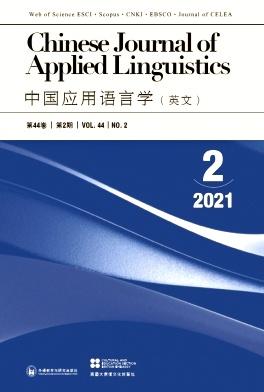走向创新教学:中级语文教师的信念转变与发展
IF 1.1
4区 教育学
Q3 EDUCATION & EDUCATIONAL RESEARCH
引用次数: 0
摘要
技术的飞速发展和全球合作的加强,使信息获取和新的交流模式发生了巨大变化,因 此,人们呼吁对教育进行即时调整(Fullan,2007 年)。尽管全球都能通过互联网获得增强型通信模式和所有学科的最新信息,包括与新的有效教学方法有关的信息,但在许多英语语言环境中,传统的以教师为中心的教学方法仍然盛行。尽管这种教学方法不足以应对 EFL 教学中的挑战,但情况依然如此。本研究探讨了 12 名 EFL 教师在学习创新教学以及以学习者为中心和 L2 互动教学的过程中,他们的教学信念是如何改变的。在一门硕士课程的顶点课程中,教师们学习了四种创新教学方法所涉及的基本要素,如以学习者为中心和 L2 互动,这四种方法是:基于任务的语言教学、提出问题、编写脚本和口头解释以及广泛阅读。分析的数据包括教师的信念报告、对互动教学的书面反思、访谈记录和教师教育者的观察记录。研究结果揭示了教师对具有上述特征的创新教学的信念变化、促成这种变化的影响因素,以及教师在教学实践中使用和借鉴这些概念的专业技能的增长情况。本文章由计算机程序翻译,如有差异,请以英文原文为准。
Toward Teaching Innovatively: L2 Teachers’ Belief Change and Development
Rapid technological advances and enhanced global cooperation have led to tremendous changes in access to information and new modes of communication and, hence, calls have been made for instantaneous adjustments in education (Fullan, 2007). Despite global access to internet-enhanced modes of communication and up-to-date information on all subjects – including those relating to new and effective approaches to pedagogy – traditional teacher-centered teaching prevails in many EFL contexts. This is the case even though this approach to teaching has been insufficient to address challenges in EFL teaching. This study explores how the teaching beliefs of 12 EFL teachers changed as they learned to teach innovatively and to teach with features of learner-centeredness and L2 interaction. In the context of a MA program capstone course, the teachers were introduced to the essential elements, such as learner-centeredness and L2 interaction, involved in four approaches to teaching innovatively: task-based language teaching, problem-posing, scripting and oral interpretation, and extensive reading. The data analyzed comprised the teachers’ belief reports, written reflections on teaching interactively, interview accounts, and the teacher educator’s observational notes. The results of this study revealed changes in teachers’ beliefs about innovative teaching with the aforementioned features, the influential forces bringing about the change, and teachers’ growing expertise in using and drawing on concepts in teaching practice.
求助全文
通过发布文献求助,成功后即可免费获取论文全文。
去求助
来源期刊

Chinese Journal of Applied Linguistics
EDUCATION & EDUCATIONAL RESEARCH-
CiteScore
1.50
自引率
0.00%
发文量
377
期刊介绍:
The Chinese Journal of Applied Linguistics (CJAL) (formerly known as Teaching English in China – CELEA Journal) was created in 1978 as a newsletter by the British Council, Beijing. It is the affiliated journal of the China English Language Education Association (founded in 1981 and now the Chinese affiliate of AILA [International Association of Applied Linguistics]). The Chinese Journal of Applied Linguistics is the only English language teaching (ELT) journal in China that is published in English, serving as a window to Chinese reform on ELT for professionals in China and around the world. The journal is internationally focused, fully refereed, and its articles address a wide variety of topics in Chinese applied linguistics which include – but also reach beyond – the topics of language education and second language acquisition.
 求助内容:
求助内容: 应助结果提醒方式:
应助结果提醒方式:


